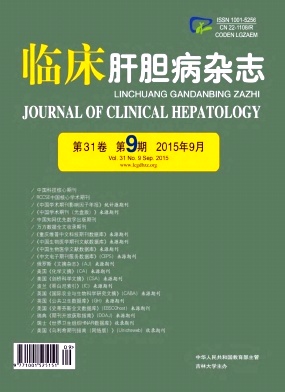Objective To explore the prognostic factors for patients treated by radical resection of the liver metastases from colorectal cancer and to analyze the significance of these factors. Methods The clinical and pathological data concerning 182 patients with liver metastases from colorectal cancer,who were admitted to our hospital from January 2003 to March 2008,were retrospectively analyzed,and the relationship between clinicopathological factors and treatment outcome was analyzed. The survival rate was calculated by the Kaplan-Meier method;univariate prognostic analysis was performed using the log-rank test; multivariate prognostic analysis was performed using the Cox proportional hazards model. Results Follow-up visits were carried out in all patients,with a follow-up period ranging from 9 to 60 months. The1-,3-,and 5-year survival rates were 82. 96%,59. 73%,and 40. 11%,respectively. Univariate analysis revealed that the number,size,and distribution of metastatic tumors,preoperative serum carcino-embryonic antigen( CEA) concentration,complications,and postoperative auxiliary therapy were prognostic factors for patients treated by radical resection of the liver metastases from colorectal cancer( χ2=4. 598、4. 653、5. 327、4. 768、5. 502、4. 546,all P < 0. 05). Multivariate analysis confirmed that the number of liver metastases,preoperative serum CEA concentration,and postoperative complications were regarded as independent predictors of survival( Wald = 5. 155,5. 905,and 8. 343,P < 0. 05). Conclusion The number of liver metastases,preoperative serum CEA concentration,and postoperative complications are independent predictors of survival. Expanding indications for surgical resection and active postoperative auxiliary therapy are crucial to increase the survival rate after radical resection of liver metastases from colorectal carcinoma.













 DownLoad:
DownLoad: